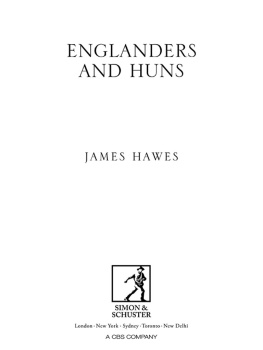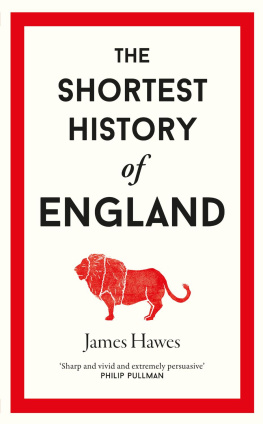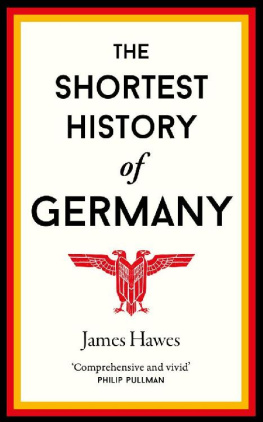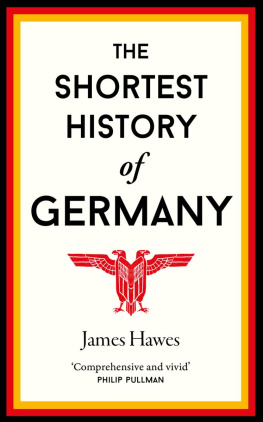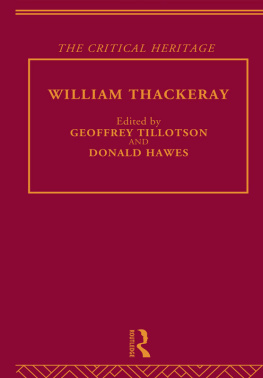James Hawes - Englanders and Huns
Here you can read online James Hawes - Englanders and Huns full text of the book (entire story) in english for free. Download pdf and epub, get meaning, cover and reviews about this ebook. publisher: Simon & Schuster UK, genre: History. Description of the work, (preface) as well as reviews are available. Best literature library LitArk.com created for fans of good reading and offers a wide selection of genres:
Romance novel
Science fiction
Adventure
Detective
Science
History
Home and family
Prose
Art
Politics
Computer
Non-fiction
Religion
Business
Children
Humor
Choose a favorite category and find really read worthwhile books. Enjoy immersion in the world of imagination, feel the emotions of the characters or learn something new for yourself, make an fascinating discovery.
- Book:Englanders and Huns
- Author:
- Publisher:Simon & Schuster UK
- Genre:
- Rating:5 / 5
- Favourites:Add to favourites
- Your mark:
- 100
- 1
- 2
- 3
- 4
- 5
Englanders and Huns: summary, description and annotation
We offer to read an annotation, description, summary or preface (depends on what the author of the book "Englanders and Huns" wrote himself). If you haven't found the necessary information about the book — write in the comments, we will try to find it.
Englanders and Huns — read online for free the complete book (whole text) full work
Below is the text of the book, divided by pages. System saving the place of the last page read, allows you to conveniently read the book "Englanders and Huns" online for free, without having to search again every time where you left off. Put a bookmark, and you can go to the page where you finished reading at any time.
Font size:
Interval:
Bookmark:

First published in Great Britain by Simon & Schuster UK Ltd, 2014
A CBS COMPANY
Copyright 2014 by James Hawes
This book is copyright under the Berne Convention.
No reproduction without permission.
All rights reserved.
The right of James Hawes to be identified as the author of this work has been asserted in accordance with sections 77 and 78 of the Copyright, Designs and Patents Act, 1988.
Simon & Schuster UK Ltd
1st Floor
222 Grays Inn Road
London WC1X 8HB
www.simonandschuster.co.uk
Simon & Schuster Australia, Sydney
Simon & Schuster India, New Delhi
A CIP catalogue record for this book is available from the British Library
Hardback ISBN: 978-0-85720-528-5
eBook ISBN: 978-0-85720-530-8
The author and publishers have made all reasonable efforts to contact copyright-holders for permission, and apologise for any omissions or errors in the form of credits given. Corrections may be made to future printings.
Typeset in the UK by M Rules
Printed and bound by CPI Group (UK) Ltd, Croydon, CR0 4YY
To Karoline von Oppen
Heartfelt thanks to:
Andrew Davies, for a grand act of help quite literally incredible (by which I mean that the few people who know of it find it extremely hard to believe); John Holme, Tim Walton and Richard Percival for proving that in time of trouble, old friendships are priceless; Philip Pullman, for much encouraging warmth and practical support; Nick Cohen, for passing his intellectual mine detector over the most dangerous chapter; James Meek, for straight-talking advice on narrative structure; Dr Peter Thompson (Sheffield University) and Prof. Karen Leeder (New College, Oxford), for countless debates and acts of hospitality; Prof. Stefan Szymanski (University of Michigan) for suggesting the chapter on sport; Elke Bechthold, for material from her unpublished thesis; Dr Matt Fitzpatrick (Flinders University), for a discussion of Australian Germanophobia; Karl von Oppen, for conversations at his dinner table about Bismarck; lastly but firstly, my mother, Mrs Janet Hawes ne Fry, who (apart from everything else) can read nineteenth-century German letters which entirely defeat me.
The following institutions, and the people named within them, have all provided help well beyond what might reasonably have been expected: Oxford Brookes University, and in particular Dr Simon Kvesi, and Prof. Anne-Marie Kilday for the sabbatical and funding; the Bonn City Museum, and in particular Dr Ingrid Bodsch, for all the time and help given to someone who approached them without introduction in pursuit of a case unknown to them; the University of Heidelberg Library, and in particular Anna Vollner, for so very kindly providing the illustrations from Kladderadatsch and Der Wahre Jacob; Simplicissimus.com, and in particular Dr Hans Zimmermann, for doing the same with that wonderful material; the staff of the Secret State Archive (GStA PK), Berlin for guidance through their labyrinth; the staff of the SCOLAR rare books collection at Cardiff University; and for many kindnesses, the librarians of Balliol, Worcester and Hertford Colleges, Oxford.
At Simon & Schuster, Colin Midson and Mike Jones had the bravery to commission this book on a rather scanty pitch, and Mike the patience to see it through; Jo Whitford coped remarkably with a horribly complex task and Juliana Foster saved me from many dreadful solecisms. My agent, Caspian Dennis at Abner Stein, was a rock throughout.
No nation has ever been given so long to make so momentous a choice: by the time Archduke Franz Ferdinand was assassinated in Sarajevo on 28 June 1914, the line-up of the next major European war, its geographical flashpoint and the vast decision that would one day face Britain, had all been perfectly clear to thinking men for thirty-five years.
The great question of our modern history is not how or why precisely this long-foreseen European war did indeed at last come about, but why Britain came to take the side she did, turning what would have been a relatively swift and comparatively un-traumatic victory for Germany and Austria-Hungary into that defining cataclysm of our times, the breaking of empires and the womb of horrors, the Great War.
The trouble is that the facts in this case lie below what professional archaeologists I was once one call a destruction layer: one of those melancholy, and literally dark, lines in the earth which mark the violent end of a settlement, a city, perhaps an entire civilisation. In the case of the Great War the physical evidence of destruction is practically limited to that single, gigantic scar across northern France and Belgium, the Western Front, the most concentrated charnel house in all military history. But that was just the start. By the time the yet more terrible aftershocks had been visited on all Europe, the world of July 1914 was sealed off by a physical, cultural, and perhaps psychological destruction layer so profound that truth has simply yielded to myth.
Our current national myth about 191418 is that of the entirely meaningless, self-generating massacre, as seen in Oh! What a Lovely War or Blackadder, set off by a more or less random assassination, fought between rival European empires of more or less equal wickedness, run by generals of more or less equal inhumanity. This view has been taken up by masterful storytellers, for whom it has been pay dirt in the shape of tales like Birdsong, The Ghost Road and, most recently, that veritable tsunami of Great War schmaltz, War Horse. As the centenary of Britains most far-reaching decision comes around, we have become a nation which, rather than seeking the truth, and hence a possible lesson in it, likes nothing better than to drown the imagined sorrows of anyone we can remotely claim as a relative who took part in this allegedly pointless and unfathomable tragedy.
Our actual historians are not, of course, entirely blind to the obvious fact that Britain freely chose to line up against Germany. But their story, too, is fascinating for what it says about us today. They all seem to agree that things were essentially fine between Britain and Germany until at least 1890.
Since this thesis roundly blames the German leaders of 18971914, you might well imagine that it is a British version of the past. In fact, it was born in the 1960s in Germany, where it is now simple orthodoxy to see a Grab for World Power under Wilhelm II as the root cause of the War of the English Succession.
The tale of Wilhelm, Tirpitz & Co. is comfortable to Britons because it clearly blames the Germans; it is comfortable to Germans because it clearly blames a certain kind of German the scar-faced, sabre-rattling kind, who, like Prussia itself, quite simply no longer exists.
Blaming the Tirpitz Plan for everything thus preserves the idea, so fashionable in modern Britain, of a British Empire which was generally a Good Thing, if perhaps incompetently or pusillanimously run; and it preserves the idea, so essential to modern Germany, of a country whose naturally Western path was deformed by the failure of its citizenry to resist a right-wing, war-mongering elite.
Font size:
Interval:
Bookmark:
Similar books «Englanders and Huns»
Look at similar books to Englanders and Huns. We have selected literature similar in name and meaning in the hope of providing readers with more options to find new, interesting, not yet read works.
Discussion, reviews of the book Englanders and Huns and just readers' own opinions. Leave your comments, write what you think about the work, its meaning or the main characters. Specify what exactly you liked and what you didn't like, and why you think so.

